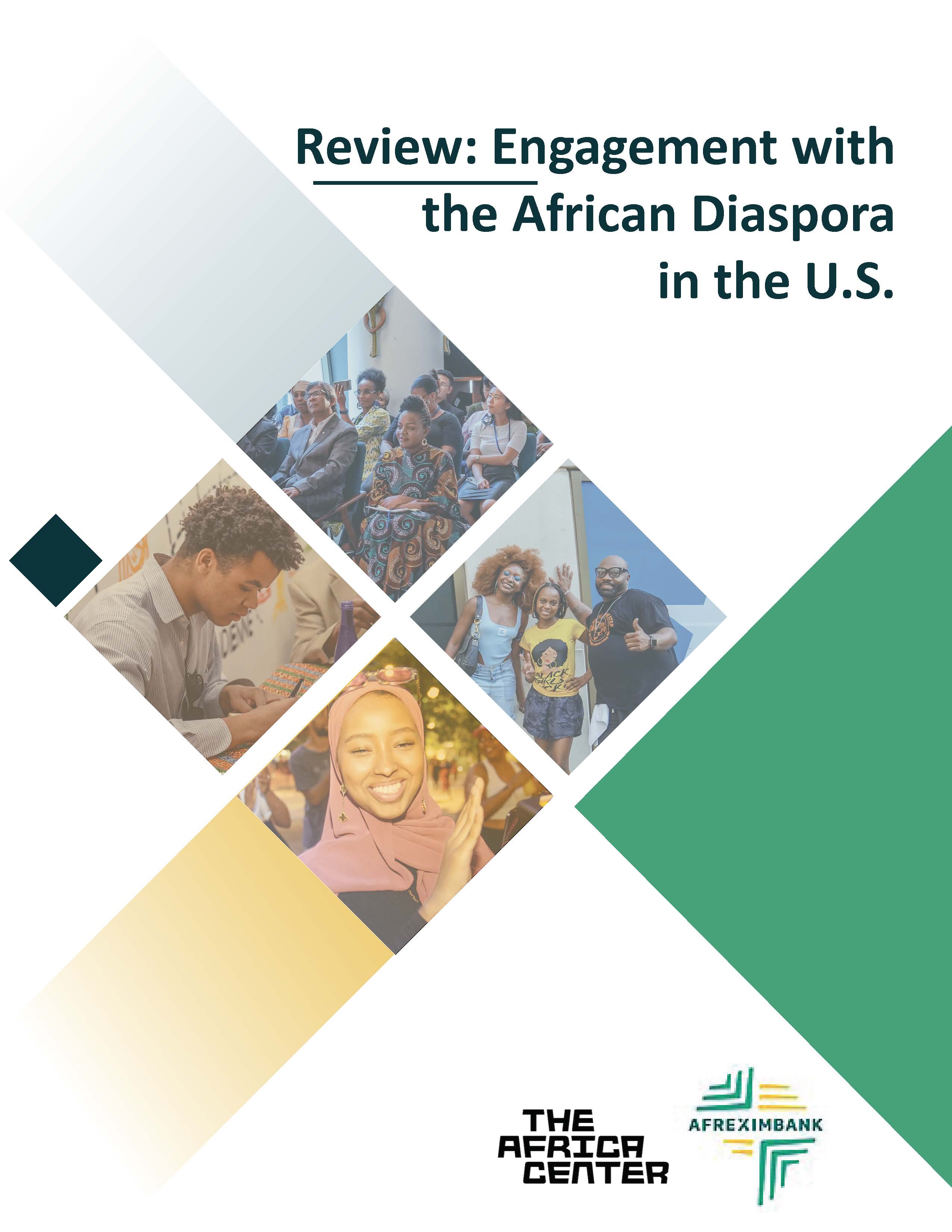Engagement with The U.S. African Diaspora - Review
As part of the multi-year partnership established with the African Export-Import bank (Afreximbank) focused on engagement with the African diaspora in the U.S., The Africa Center conducted a literature review of how formal, deliberate engagement with African diaspora groups has developed over time. This review set out to identify policies and initiatives aimed at fostering greater engagement between important social, economic, and governing institutions in the U.S. and burgeoning immigrant groups from the African continent. This extensive review provided the following insights:
- African diaspora communities in the U.S. are not monolithic in their histories, levels of organization, priorities, and degrees of connectedness to the continent.
- The rate with which specific government policy has been aimed at engaging with African diaspora groups in the U.S. greatly increased beginning in the 1960s and has grown in sophistication since.
- The majority of these initiatives have been undertaken to advance immigration and nationalization priorities among these groups. Engagement on economic, political, and social issues have been much less prevalent.
- There exists a large and diverse collection of diaspora-focused civil society and non-governmental organizations operating in the U.S., as well as a largely underexploited demand for closer, sustained ties with the African continent across a range of issues.
- Engagement occurs primarily at the domestic level between institutional actors and diaspora com-munities in the U.S. Formalized efforts to build personalized relationships with popular countries of origin from Africa have increased but remain rare.

Findings from this review will inform the thematic focus and hypotheses pursued in our forthcoming diaspora research study. This extensive, rigorous undertaking will mark the first major output of Global Gateway Africa, and we hope will ultimately inform the kinds of policies and inititaives that make up engagement efforts going forward. Possible areas of inquiry include:
- What are the economic conditions and aspirations of African diaspora groups, and to what extent do they seek further access to financial markets on the African continent?
- What are the social and political priorities of African diaspora groups in the U.S.?
- How would diaspora African in the U.S. characterize their interactions/level of connectedness with the continent today?
- What types of engagement would they like to see enhanced and how can this be best facilitated?
- On what issues facing the continent are diaspora Africans best positioned to contribute to solving? In what capacity would diaspora stakeholders be most productive?
Download the full report here.
